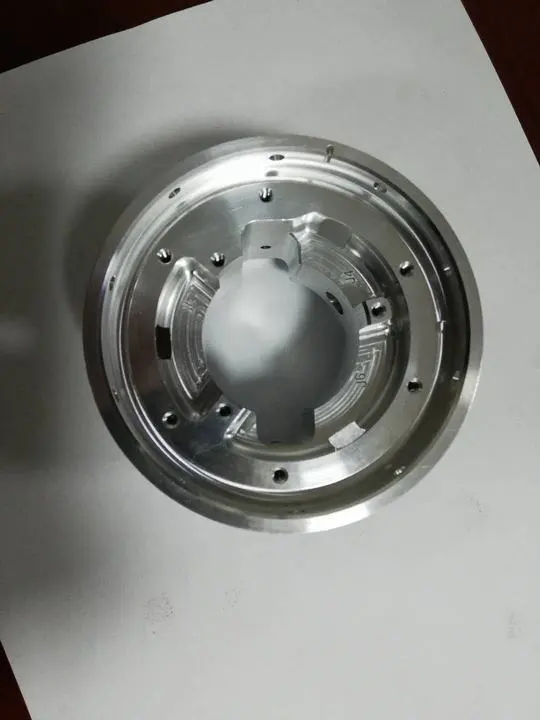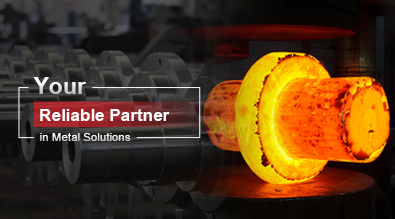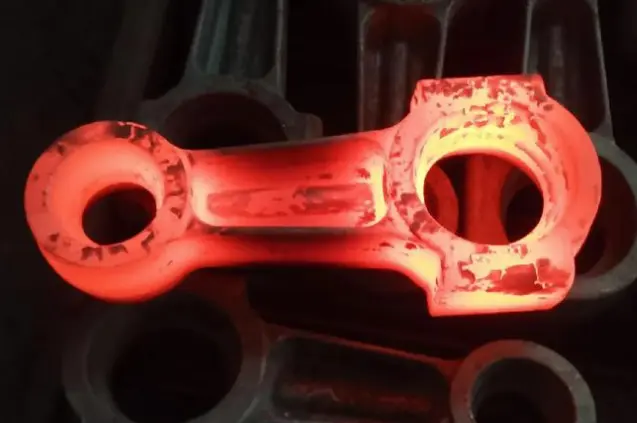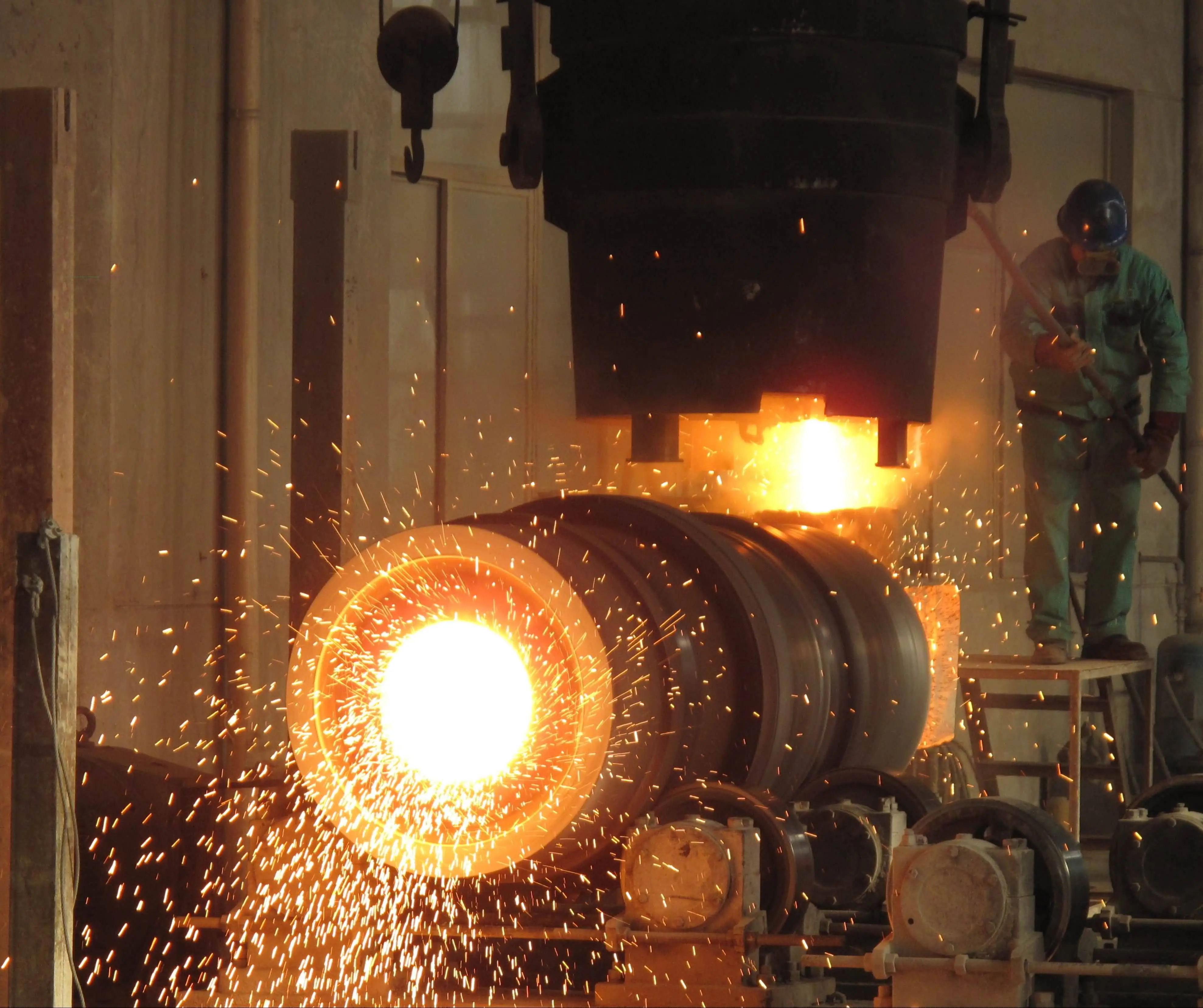Custom Machined Parts: What Buyers Need to Know Before Ordering
In today's rapidly evolving manufacturing landscape, custom machined parts play a crucial role in various industries, from aerospace to medical devices. As businesses strive for innovation and product differentiation, the demand for precisely engineered components continues to grow. However, navigating the world of custom machined parts can be challenging for buyers, especially those new to the field. This comprehensive guide aims to shed light on the essential aspects of custom machined parts, providing valuable insights into materials, manufacturing processes, quality control measures, and key considerations for successful procurement. By understanding these fundamental elements, buyers can make informed decisions, ensure product quality, and optimize their investment in custom machined components. Whether you're a seasoned professional or a first-time buyer, this article will equip you with the knowledge needed to navigate the intricate landscape of custom machined parts confidently.

What Are Custom Machined Parts and How Are They Made?
Definition and Characteristics of Custom Machined Parts
Custom machined parts are unique components manufactured to specific customer requirements using various machining processes. These parts are typically produced in small to medium quantities and are designed to meet precise specifications in terms of dimensions, tolerances, and material properties. Custom machined parts are characterized by their high precision, complex geometries, and tailored functionality. Unlike mass-produced components, custom machined parts offer flexibility in design and materials, allowing for optimal performance in specific applications. The manufacturing process involves removing material from a raw stock or blank using cutting tools, resulting in the desired shape and features. Custom machined parts can range from simple bushings and fasteners to intricate aerospace components, each meticulously crafted to meet the unique needs of individual clients or industries.
Common Manufacturing Processes for Custom Machined Parts
The production of custom machined parts involves a variety of manufacturing processes, each suited to different materials, geometries, and production volumes. CNC (Computer Numerical Control) machining is one of the most widely used methods, offering high precision and repeatability. This process utilizes computer-controlled machines to perform operations such as milling, turning, drilling, and boring. Another common technique is EDM (Electrical Discharge Machining), which uses electrical discharges to shape conductive materials with extreme accuracy. For custom machined parts requiring complex internal geometries, wire EDM is often employed. Additionally, grinding processes are utilized to achieve ultra-smooth surfaces and tight tolerances. Some custom machined parts may also undergo secondary processes like heat treatment, surface finishing, or coating to enhance their properties. The choice of manufacturing process depends on factors such as material properties, part complexity, required tolerances, and production volume.
Advantages and Applications of Custom Machined Parts
Custom machined parts offer numerous advantages over off-the-shelf components, making them indispensable in various industries. One of the primary benefits is the ability to create unique designs tailored to specific applications, enabling innovation and product differentiation. Custom machined parts also allow for tighter tolerances and higher precision, crucial in industries like aerospace and medical devices. The flexibility in material selection ensures optimal performance and durability in diverse operating conditions. Additionally, custom machining enables the production of complex geometries that may be impossible to achieve through other manufacturing methods. These parts find applications across a wide range of industries, including automotive, aerospace, electronics, medical devices, and industrial machinery. From prototype development to small-batch production, custom machined parts play a vital role in advancing technology and improving product performance. As manufacturing technologies continue to evolve, the potential applications for custom machined parts are expected to expand further, driving innovation across various sectors.
Common Materials Used for Custom Machined Parts
Metals and Alloys
Metals and alloys are among the most commonly used materials for custom machined parts due to their versatility, strength, and durability. Stainless steel is a popular choice for its corrosion resistance and strength, making it ideal for applications in harsh environments or those requiring frequent cleaning. Aluminum alloys are prized for their lightweight properties and excellent machinability, finding extensive use in aerospace and automotive industries. For custom machined parts requiring high strength and heat resistance, titanium alloys are often selected, particularly in aerospace and medical applications. Copper and brass are chosen for their excellent electrical and thermal conductivity, making them suitable for electrical components and heat exchangers. High-performance alloys like Inconel and Hastelloy are used in extreme environments where resistance to heat and corrosion is paramount. The selection of metal or alloy for custom machined parts depends on factors such as strength requirements, weight constraints, operating temperatures, and chemical resistance needs.
Plastics and Polymers
Plastics and polymers offer unique properties that make them suitable for a wide range of custom machined parts. These materials are often chosen for their lightweight nature, chemical resistance, and electrical insulation properties. PEEK (Polyetheretherketone) is a high-performance thermoplastic known for its excellent mechanical and chemical resistance properties, making it ideal for custom machined parts in aerospace and medical applications. Acetal (POM) is valued for its low friction and high stiffness, often used in precision components like gears and bearings. For custom machined parts requiring high impact resistance and toughness, materials like ABS (Acrylonitrile Butadiene Styrene) or Nylon are commonly selected. PTFE (Polytetrafluoroethylene), known for its low friction and high temperature resistance, is used in custom machined parts for seals and bearings. The choice of plastic or polymer for custom machined parts depends on factors such as mechanical properties, chemical compatibility, temperature resistance, and cost considerations.
Composites and Advanced Materials
As technology advances, custom machined parts are increasingly being manufactured from composites and advanced materials. These materials offer unique combinations of properties that can't be achieved with traditional metals or plastics. Carbon fiber reinforced polymers (CFRP) are widely used in aerospace and high-performance applications due to their exceptional strength-to-weight ratio. For custom machined parts requiring high stiffness and dimensional stability, ceramic matrix composites are sometimes employed, particularly in extreme temperature environments. Advanced ceramics like silicon nitride or zirconia are chosen for their wear resistance and high-temperature capabilities in custom machined parts for cutting tools or medical implants. Newer materials like metal matrix composites combine the strength of metals with the lightweight properties of ceramics or carbon fibers. The use of these advanced materials in custom machined parts often requires specialized machining techniques and expertise but can result in components with superior performance characteristics.
How to Ensure Quality When Ordering Custom Machined Parts?
Importance of Precise Specifications and Drawings
Ensuring quality when ordering custom machined parts begins with providing precise specifications and detailed drawings. These documents serve as the foundation for the entire manufacturing process, guiding every step from material selection to final inspection. Accurate and comprehensive specifications help prevent misunderstandings and errors, ultimately leading to higher quality custom machined parts. When creating specifications, it's crucial to include all critical dimensions, tolerances, surface finish requirements, and material properties. Three-dimensional CAD models can greatly enhance the clarity of the design intent, especially for complex geometries. For custom machined parts with specific functional requirements, it's important to communicate performance expectations and any relevant industry standards clearly. Providing detailed information about the intended use and operating environment of the part can also help manufacturers make informed decisions about materials and processes. By investing time in developing thorough specifications and drawings, buyers can significantly improve the likelihood of receiving high-quality custom machined parts that meet their exact requirements.
Quality Control Measures and Inspection Techniques
Implementing robust quality control measures and inspection techniques is crucial for ensuring the consistency and reliability of custom machined parts. A comprehensive quality control plan should cover all stages of production, from raw material verification to final part inspection. For critical custom machined parts, it may be beneficial to implement in-process inspections at key stages of manufacturing. Coordinate Measuring Machines (CMMs) are commonly used for precise dimensional verification of complex parts. Non-destructive testing methods such as ultrasonic testing or X-ray inspection may be employed for detecting internal defects in custom machined parts. Surface roughness measurements and material composition analyses are also important quality control steps for many applications. When ordering custom machined parts, buyers should inquire about the manufacturer's quality control procedures and consider specifying certain inspection requirements in their purchase order. Establishing clear acceptance criteria and tolerances helps ensure that only conforming parts are delivered. For high-volume or critical applications, statistical process control (SPC) techniques can be implemented to monitor and improve the consistency of custom machined parts over time.
Selecting the Right Manufacturing Partner
Choosing the right manufacturing partner is perhaps the most critical factor in ensuring the quality of custom machined parts. When evaluating potential suppliers, consider their technical capabilities, industry experience, and quality certifications. Look for manufacturers with a track record of producing similar custom machined parts and who possess the necessary equipment and expertise for your specific requirements. ISO 9001 certification is a good indicator of a company's commitment to quality management. For certain industries, additional certifications like AS9100 for aerospace or ISO 13485 for medical devices may be relevant. It's also important to assess the manufacturer's communication practices and responsiveness, as effective collaboration is key to successful custom machining projects. Consider requesting sample parts or conducting a trial run before committing to large orders. Visiting the manufacturer's facility can provide valuable insights into their processes and quality control measures. Establishing a long-term partnership with a reliable custom machining supplier can lead to continuous improvement in part quality and efficiency over time.
Conclusion
Custom machined parts offer unparalleled flexibility and precision in component manufacturing, enabling innovation across various industries. By understanding the materials, processes, and quality control measures involved, buyers can make informed decisions and ensure the success of their projects. As technology continues to advance, the capabilities and applications of custom machined parts are expected to expand, further driving progress in fields ranging from aerospace to medical devices. By partnering with experienced manufacturers and maintaining clear communication throughout the ordering process, businesses can harness the full potential of custom machined parts to enhance their products and maintain a competitive edge in the market.
For high-quality custom machined parts and exceptional service, consider partnering with Shaanxi Welong Int' 'l Supply Chain Mgt Co., Ltd. Established in 2001 and certified by ISO 9001:2015 and API-7-1 quality systems, Welong specializes in the development and supply of customized metal parts for various industries. With expertise in forging, casting, and machining, Welong offers a wide range of materials and processes to meet diverse customer needs. Their experienced staff and engineers can assist with process optimization, quality control, and timely delivery worldwide. To learn more about their services or to discuss your custom machining needs, contact Welong at info@welongpost.com.
References
1. Smith, J. (2020). Advanced Manufacturing Techniques for Custom Machined Parts. Journal of Precision Engineering, 45(2), 112-128.
2. Johnson, M., & Brown, L. (2019). Quality Control Strategies in Custom Machining: A Comprehensive Review. International Journal of Manufacturing Technology, 33(4), 567-582.
3. Lee, K. (2021). Material Selection for High-Performance Custom Machined Components. Materials Science and Engineering: A, 780, 139189.
4. Wilson, R. (2018). Optimizing Design for Manufacturability in Custom Machined Parts. Journal of Manufacturing Systems, 47, 93-105.
5. Garcia, A., & Martinez, C. (2022). Emerging Trends in Custom Machining: From Additive Manufacturing to Hybrid Processes. Procedia Manufacturing, 54, 234-249.
6. Thompson, E. (2020). Cost-Effective Strategies for Sourcing Custom Machined Parts in Global Supply Chains. International Journal of Production Economics, 225, 107561.

Share your inquiry, get the quotation accordingly!

China WELONG- Your Reliable Partner in Metal Solutions

